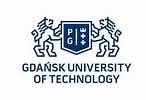BIOSOLFarm - South Baltic Farms - an essential part of renewable energy systems
Climate changes, socio-political upheavals, and the ongoing pandemic have exposed the fragility of our current systems and highlighted the need for self-sufficiency in key areas such as food and energy. The high prices of electricity, fertilizers, and fuels have increased the concerns of society. Given the vast expanse of land and the dominant share in the market, agriculture holds great potential to contribute to energy systems and to provide a more sustainable future for all. Agricultural farms offer enormous potential for production of those key resources. Using it can increase energy efficiency, but it also contribute to the improvement of material flow and waste management. With an estimated total area of 37 million hectares of agricultural land in the region, there is a great space for improvements. While the challenges and opportunities for farms across the South Baltic Sea region may differ, a common goal is to improve energy production and storage at the farm level and increase energy security. However, many farms are too small to make optimal use of their resources and energy technologies such as anaerobic digestion. This is where the importance of small farmers associations comes in. By working together, these associations can pool their resources, knowledge, and expertise, and adapt it to their specific conditions. To overcome the challenges of introducing new business models, it is crucial for small farms to engage in knowledge and practice exchange. This can be achieved through cooperation and networking initiatives. By working together, small farmers associations can overcome the challenges and maximize the opportunities for energy production, consumption, and storage. The development of innovative solutions and business models, combined with cross-border partnerships of farmers and stakeholders will help to create a greener, more secure, and more prosperous future for all.
Projekt:
BIOSOLFarm - South Baltic farms- a part of renewable energy systems
Förderkennzeichen:
STHB 02.02 - IP.01.-0003/23.00
Förderprogramm:
Interreg South Baltic Programme 2014-2020
Laufzeit:
09.2023-08.2026
Projektkoordinator:
Gdańsk University of Technology
Faculty of Chemistry
Narutowicza 11/12, 80-233 Gdańsk
Internetseite
Projektbearbeiter an der Professur:
tbc





